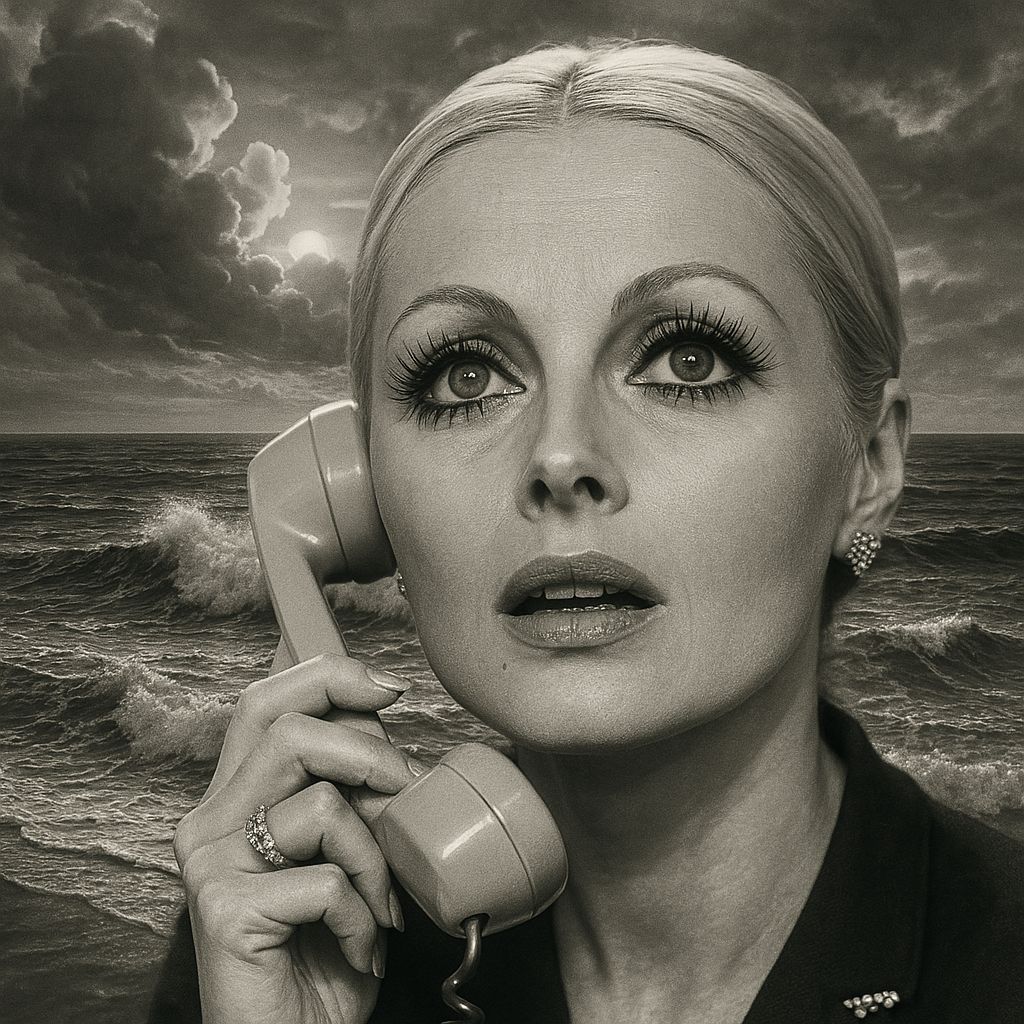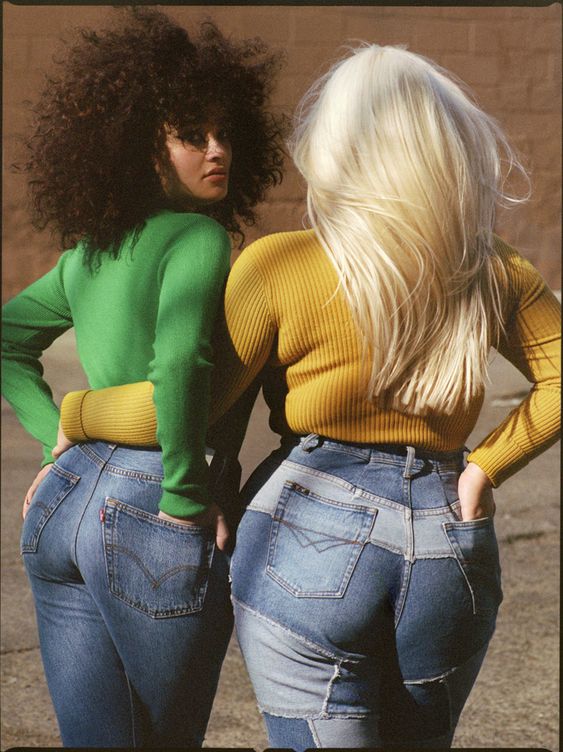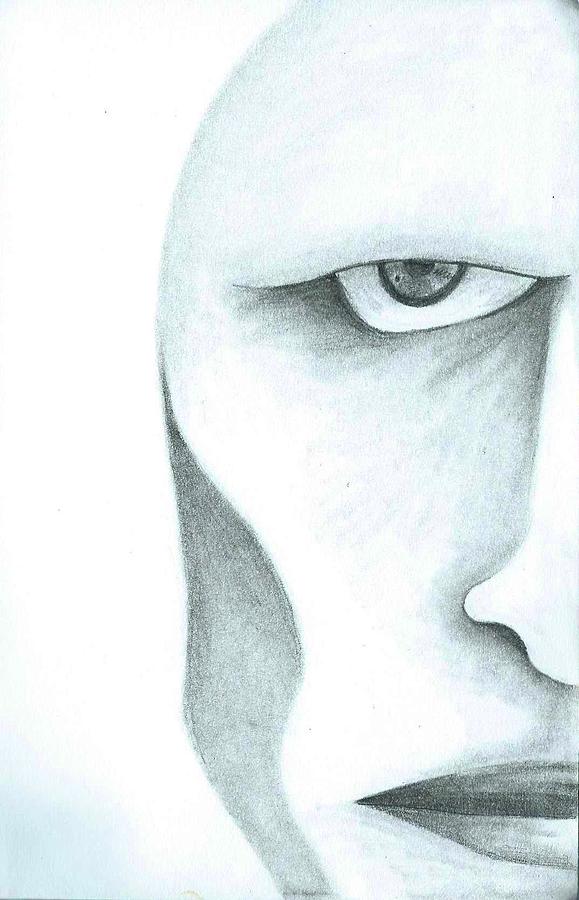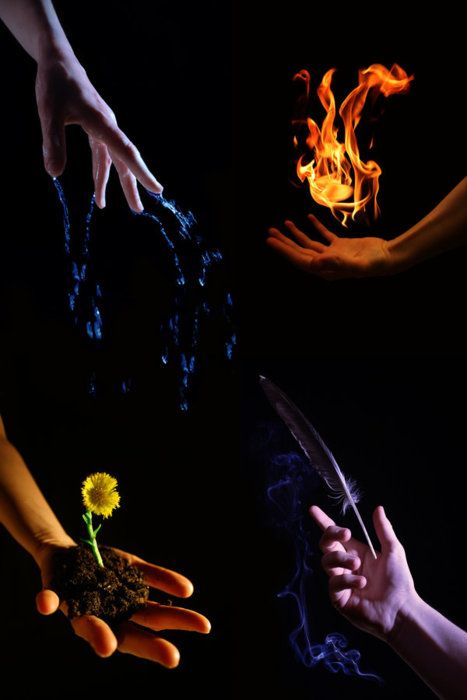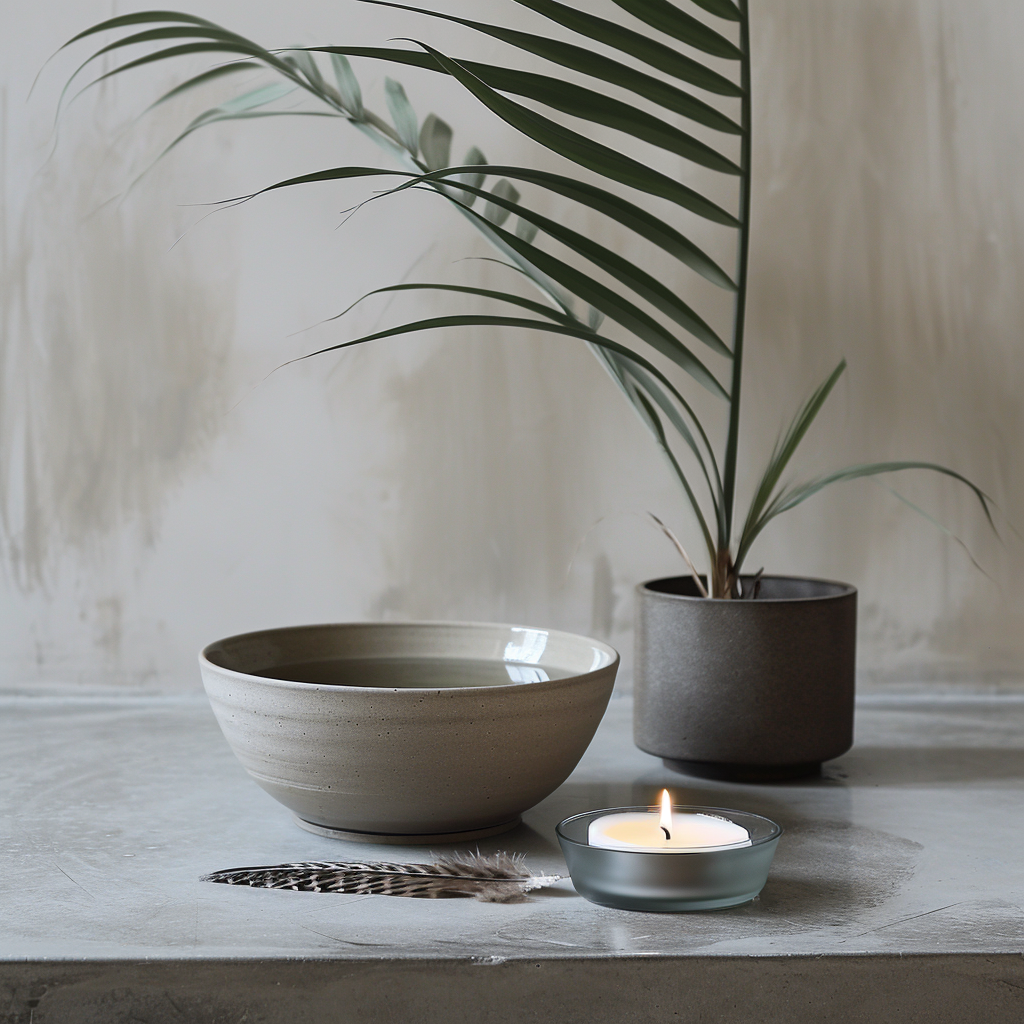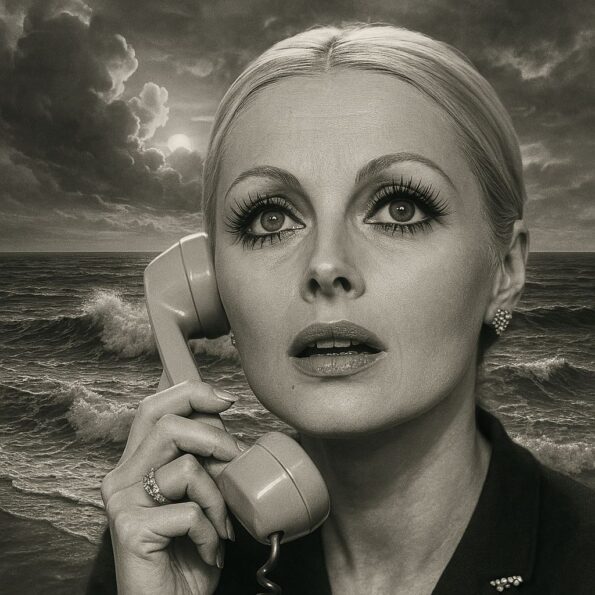
In psychology astrology, there is the idea that a lack of water in one’s astrological chart might leave a soul parched for empathy, compassion, and the emotional empathy that binds us together in a shared humanity. Stephen Arroyo, says that the water signs—Cancer, Scorpio, and Pisces represent the inner tides of feeling, intuition, and connection. So when your chart has an imbalance of water, you may walk through the world capable, analytical, but somewhat baffled by the emotional needs of others. “Why is that person crying over there?” you wonder. “Why do I feel awkward when someone hugs me for more than two seconds?” These are the symptoms of waterlessness. Now, the absence or scarcity of water signs in a natal chart isn’t an oversight by the universe. It’s more of a soul choosing to journey through this life with a different kind of experience. Water, in its astrological sense reflects the capacity to be permeable. Water flows, merges, absorbs. It feels, and more than that—it feels for others. Without much water in your chart, you might experience the world more from the mind than the heart. You might be rational, able to offer solutions, yet feel a kind of flatness when someone just needs you to sit with them in their sadness and say, “Yes, it hurts, doesn’t it?”
It’s not that those without much water in their charts are robotic or emotionally sterile, wandering through life emotionally oblivious. It’s far more nuanced than that. There’s a subtle yet profound difference: they do feel, and in many cases they may feel with startling intensity—but they might not live there. Emotion isn’t their native habitat. To such a person, emotions can seem both familiar and foreign. The capacity for sensitivity exists, but it may come with the feeling that it needs interpreting. They often register emotional states the way one might detect a storm on the horizon—something brewing, atmospheric, not immediate but sensed.
Those who lack water in their charts often notice their own feelings only in retrospect. Like, “Oh… I was sad. That’s what that was.” They have feelings, but not always the fluency to express or process them in the moment. The result? Emotions get delayed, bottled, mislabeled. Instead of crying during the film, they’ll cry three days later while unloading the dishwasher. The psyche needed a minute, or three days, to get the memo.
To someone steeped in emotional awareness, this difference might seem bizarre. “But everyone feels!” they say. And they do. But some live in the ocean, while others just get rained on from time to time. The rain still wets the skin—it just doesn’t become the air they breathe. It’s a temperament. And often, those with little water have developed extraordinary strengths elsewhere. Maybe they’re astonishingly grounded, or articulate, or driven by vision and logic. They’re not heartless—they’re more likely to approach feelings rather than embody them.
We have to sound the bell of caution here. Astrology, at its most soulful, isn’t a rigid personality interpretation. It’s a symbolic language, a map—not the territory itself. If we start taking these archetypes as verdicts rather than suggestive metaphors, well, we risk turning a living, breathing psyche into in a labelled jar: “Lacks water. Emotional resonance low.”
The idea that someone with little water in their chart is therefore cold or emotionally inept is only true in the same way that someone with no planets in Capricorn might be said to lack ambition—it’s a lazy reduction of a rich human story. When Arroyo says such people may appear aloof or emotionally distant, he’s offering a possibility. He’s pointing to how energy might tend to express itself, especially if left unexamined or unbalanced. It isn’t a definition of the soul’s potential.
There’s an irony too—it is often a very watery response to read “lacking water” and spiral into, “Oh god, I’m emotionally stunted!” That’s the water trying to speak, even through its scarcity: “Do I still matter if I don’t feel the same way others do?” Sometimes, those with little water are not deficient in feeling at all. They’re simply unaccustomed to making it their compass. They might feel just as deeply—perhaps even more intensely—but without the ease of expression, or the natural trust in those inner tides. Feelings are harder to grasp. Their emotional world may be rich and complex, and they know something is going on, but it takes time and effort to understand it.
What they often do have is strength in other elemental domains. And even if, as Arroyo suggests in Astrology, Psychology & the Four Elements, they can come across as callous or aloof, we must remember that appearance is not essence. Aloofness might be a defense. Callousness might be someone who is hurting, or it could be a fear of being overwhelmed by something they don’t yet know how to handle. The work, then, is not to shame this absence, but to explore it with curiosity.
A Waterlogged Chart
An abundance of water doesn’t always look like soft-hearted empaths or beautiful souls awash in emotion. We’re talking about turbulent, unfiltered depth. The ocean drowns. Water, in its overwhelming forms, isn’t always empathy and emotional nuance. Sometimes it’s possessive, manipulative, or terrifyingly numb. Think of a swamp, a flood, a glacier. Emotion without boundaries can be dangerous. Just because someone’s got a Moon in Pisces doesn’t mean they’ll spend their life adopting pets and offering comfort to strangers. That Moon might be twisted by trauma, ignored, suppressed, or weaponized. The same soft stream can, under pressure, become the very thing that erodes its roots.
Charts are potential, not prophecy. We don’t know about environment, upbringing, trauma, and choice. One child with a Scorpio Moon might become a healer, another a manipulator. The difference may lie in how they were taught to deal with pain. Were they shown love when they were vulnerable? Or were they taught that power and silence were the only safe places? The presence of a lot of water doesn’t guarantee warmth any more than the lack of it ensures detachment. In fact, some of the coldest people may be drowning inside, unable to regulate the floods within them. There’s a kind of emotional cruelty that comes from being overwhelmed, from not knowing where you end and someone else begins. And when boundaries collapse—when feeling becomes everything and nothing at once then we find the archetypes of the emotionally volatile, the dangerous, the unpredictable. Not because water is bad, but because it’s uncontained.
The art of astrology doesn’t involve tallying planets and declaring character traits—its aim is to understand how the psyche navigates its own potential. This is shaped not only by stars, but by scars. Psychology is a tricky business. The inner life of a human being can’t be wholly seen in a chart, any more than love can be summed up in a few words. The early conditioning, the unremembered wounds, the cultural shaping—all of these complicate the neatness of astrological interpretation. But that doesn’t make the chart useless. Quite the opposite. It makes it a starting point. A symbolic invitation to understand the material of your being, so you might shape it with awareness, compassion, and a bit of humor.
In Denial
The things we deny most fiercely are the ones that eventually own us. When feeling is treated like a hindrance—when logic, productivity, or social identity are exalted to the point that emotion is seen as some messy, inconvenient intrusion—the emotional body doesn’t pack up and leave politely. It goes underground. It gathers force in the subconscious, waiting for a crack in the armor. And when it finds one—boom—a tidal wave.
This is the shadow of the water element. Not feeling too little, but suppressing so hard that when it finally surfaces, it does so as a great tsunami. You think you’re in control, steering the ship with cool intellect and calculated charm, and then suddenly you’re crying in the middle of nowhere. It’s ten years of unspoken grief, uncried tears, and the simple human need to be held. Just once. By someone who sees you.
Those with very little conscious water in their charts might genuinely believe emotions are illogical distractions. They may trust only what they can see, measure, prove. They may pride themselves on not crying at funerals or keeping their cool under pressure. But beneath their stoicism can lie a powder keg of unresolved emotion—and when it explodes, it does so in primitive, almost mythic fashion. You don’t get a gentle, tearful evening—you get Poseidon: angry and uncontainable.
But you can choose to invite the water in. You can cultivate relationship with it, not as a master-slave dynamic. Feelings don’t have to run your life—but they do deserve a seat at the table. Even if they’re awkward and spill things.
Perhaps the ultimate goal isn’t to become a watery type or to fix your chart or reach some perfect elemental balance. Perhaps it’s just to become a little more honest with yourself. To listen when the quiet inner voice says, “I’m feeling something,” and to respond, not with dismissal or fear, but with curiosity. Water, in all its mysterious glory, is never simple. It’s a full of feeling—at times sweet, other times sinister, always deep.
If someone has a lot of water in their chart, they’re often deeply emotionally aware. Water senses what isn’t said, notices the tremble beneath the smile, the storm behind the silence. This is why it can be so healing. It knows when someone needs a hand on the shoulder or a wordless presence in the room. But water’s very sensitivity, their emotional IQ, can also be weaponized. Still water runs deep, they say—and sometimes it runs deep into manipulation, into emotional games, into the art of making others feel things they don’t quite understand, all to achieve an unseen end.
But that’s still intelligence. It’s isn’t moral, it’s would never be a virtue, but it is psychic sophistication. Water understands people. Sometimes better than they understand themselves. And when that understanding is used for love, it’s divine. When used for power, it can be terrifying. This is what makes the landscape of astrology so endlessly fascinating. It’s never as simple as “too much water equals over-emotional,” or “not enough means cold and disconnected.” It’s about how that water moves. Is it stagnant or clear? Is it ice or steam? Is it a soothing bath or a rising tide that threatens to drown? Each element has its shadows and its gifts, its purity and its distortion. And the deep spiritual calling—is to bring it all into consciousness.
Stumbling into Feelings
The emotionally “dry” soul is often so composed on the outside, and then it often begins a quiet and awkward pilgrimage inward, trying to touch the waters they’ve spent a lifetime avoiding. And it’s not a glamorous journey, not at first. It’s not all moonlight weeping and cathartic revelations. It starts with resistance. With clenched jaws, arms folded, and a stubborn refusal to “go there.” And yet… something in them knows they must. Stephen Arroyo speaks of it not as an elegant unfolding, but as groping—a raw, stumbling word, but how accurate it is. Because that’s what it feels like when you’re not fluent in the language of emotion. You don’t dive in, you fumble. You don’t open up like a flower—you crack, a little, here and there. You don’t reach out in graceful vulnerability—you grope towards others, as if half-blind, hoping they might hold the lantern to your own buried heart.
What you find there is not always pleasant. Fear. Loneliness. A silent sorrow that’s made a home in you, unseen. These aren’t feelings the water-light person is comfortable with. These are feelings they’ve avoided. “I don’t need anything,” they say—and yet inside, there’s a child at the window, watching the rain fall, longing to be held. This is where pain becomes the unexpected teacher. Because the more they resist feeling, the more feeling insists. It comes through the back door—through anxiety, numbness, physical symptoms. And in pushing away needs, they only deepen the ache.
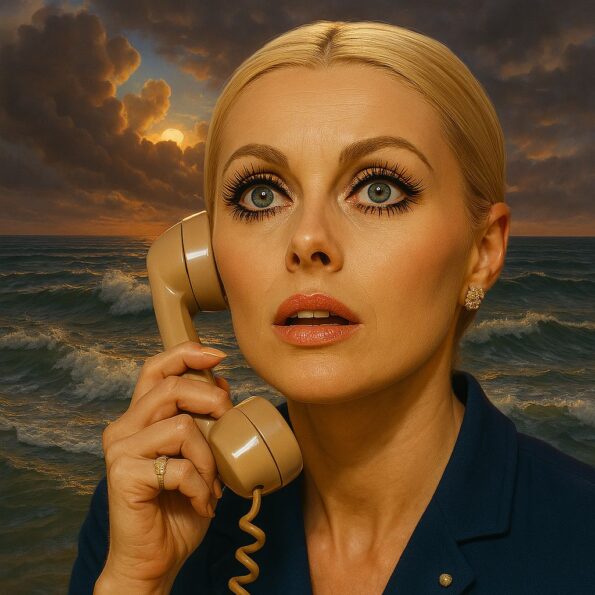 When they begin, ever so gently, to let the water trickle in—not flood, just trickle—they begin to soften. To breathe. To remember what it is to be human, messy and vulnerable and unbearably beautiful in all the broken bits. They don’t become watery empaths overnight, but they start to listen. To themselves. To others. They may not know what to say, but they learn to stay. To be present. Even in discomfort. Even in silence. This slow, resistant, reluctant movement toward feeling is a spiritual triumph. It’s the courage to sit with what’s real. To admit, however awkwardly, “I hurt sometimes. I’m lonely too. I don’t have it all together.” And from that admission, true connection is born—with others, and just as importantly, with themselves. Because the irony of lacking water in the chart is this: the feelings are still there. Always were. Waiting to be acknowledged. This lack of water can manifest in curious and unexpected ways. Some people without water in their chart might overcompensate—they become great therapists, caretakers, nurses of emotional wounds, precisely because they’ve had to learn these things like a second language. Others might retreat into logic, dismissing feelings as messy, unreliable things. They build towers of reason and stand atop them, slightly lonely kings and queens of emotional distance. Those with too little water often have the potential to be the most profound emotional beings of all. This is because they have to earn it. They don’t take it for granted. When they feel, they really feel, because it’s like color blooming in a black-and-white film.
When they begin, ever so gently, to let the water trickle in—not flood, just trickle—they begin to soften. To breathe. To remember what it is to be human, messy and vulnerable and unbearably beautiful in all the broken bits. They don’t become watery empaths overnight, but they start to listen. To themselves. To others. They may not know what to say, but they learn to stay. To be present. Even in discomfort. Even in silence. This slow, resistant, reluctant movement toward feeling is a spiritual triumph. It’s the courage to sit with what’s real. To admit, however awkwardly, “I hurt sometimes. I’m lonely too. I don’t have it all together.” And from that admission, true connection is born—with others, and just as importantly, with themselves. Because the irony of lacking water in the chart is this: the feelings are still there. Always were. Waiting to be acknowledged. This lack of water can manifest in curious and unexpected ways. Some people without water in their chart might overcompensate—they become great therapists, caretakers, nurses of emotional wounds, precisely because they’ve had to learn these things like a second language. Others might retreat into logic, dismissing feelings as messy, unreliable things. They build towers of reason and stand atop them, slightly lonely kings and queens of emotional distance. Those with too little water often have the potential to be the most profound emotional beings of all. This is because they have to earn it. They don’t take it for granted. When they feel, they really feel, because it’s like color blooming in a black-and-white film.
